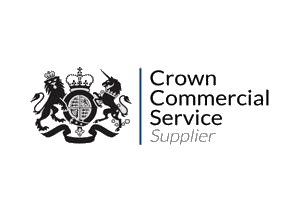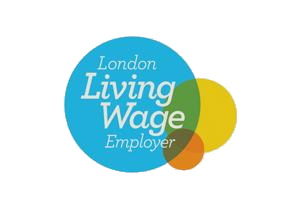A thorough post-mortem of the Republican Party’s disappointing midterm performance, alongside witty commentary and political impersonations, were what delegates started the third and final day of IAPC55 with. Fox News contributor, political pundit and analyst Guy Benson gave a timely and entertaining breakfast keynote speech touching on Trump’s 2024 presidential run, the divisions within the Republican Party between Trump and DeSantis supporters, and why Joe Biden helped bind the Democratic Party together to emerge relatively unscathed from the midterms they were expecting a drubbing at.
Remaining on the topic of the midterms, the first panel of the day saw representatives from two of the most renowned US polling firms, and the first Commissioner of Immigrant Affairs of New York City speak about future trends of US elections. John Zogby, Brent Buchanan and Sayu Bhojwani offered their takes on what the polls missed in 2020 and 2022 that facilitated both Republican and Democratic overperformance (respectively). They also looked at which demographic each party improved their performance with and how they can retain and grow their existing coalitions in preparation for 2024.
Delegates then enjoyed a trip to South America, where Giselle Perezblas, Edgard Gutiérrez and Consuelo Saavedra spoke to the conference about the shifting patterns of the continent’s politics and the innovative campaigning that gets its politicians elected. Using visually engaging presentations, the panellists showed how incumbency is not as cherished when it comes to a politician’s election, and delved into the priorities of the continent’s voters – from deforestation to public health. Panellists also touched on the proliferation of conspiracy theories that seek to undermine the results of elections on the continent, particularly those from defeated Brazilian President Jair Bolsonaro.
Before lunch, IAPC delegates heard from yet another distinguished panel. BTP Advisers’ Mark Pursey, Jonathan Moakes of SABI Strategy Group, and anti-bribery and anti-corruption champion Katherine Mulhern delivered excellent remarks analysing how the West perceives the continent’s politics and the future of electoral integrity. Touching on Kenya, Ghana, South Africa, and Egypt the panel taught the conference some excellent lessons about how we speak and refer to the continent’s political scene.
We were delighted to welcome Reform Party leader Richard Tice who delivered a thought-provoking and critical assessment of the state of British politics and the priorities of the Conservative Party to our delegates during the lunchtime keynote slot. Tice’s passion for his beliefs offered delegates some levity and lively talking points, and I am proud that throughout this conference, the College Green Group team were able to secure speakers from the five largest parties in the UK – the Conservatives, Labour, Liberal Democrats, SNP, and Reform Party.
Following lunch, College Green Group’s Jason MacKenzie interviewed two juggernauts of journalism – Christopher Hope of the Telegraph, and David Maddox of the Express. The unique and light-hearted commentary crossed many topics, and the pair gave unparalleled insights into their careers and how political stories develop and escalate. Maddox and Hope also went into detail on how the media landscape has and continues to change at pace. We are grateful the two took the time to speak to IAPC55 and give delegates a look under the hood of the political journalist.
The final panel of IAPC55 focused on the ever-important issue of cyber-security and campaigning through online platforms. USC’s Adam Clayton Powell III, Microsoft’s Dave Leichtman, DSPoliticals’ Mark Jablonowski, Salesforce’s Michael Duggan and New Blue Interactive’s Taryn Rosenkranz discussed the need for campaign cyber resilience and what can happen when this is neglected. Using real-world examples, the stellar line-up concluded the formalities of IAPC55 by delving into online audience targeting, enforcing election integrity in the US and in other countries that conduct elections through electronic means, and the evolving tech ecosystem that will only develop with more complexity.
Ultimately, the IAPC’s 55th conference concluded with a black tie reception and dinner at the prestigious Hurlingham Club. Such an ending is fitting for a conference that I am incredibly proud to have organised with the invaluable help and support from the College Green Group team. I reflect on a conference that saw us focus on often neglected corners in the political arena – indigenous communities, African elections, and the rising impact of class in political debate. I also look back at a conference that saw politicians, pundits, pollsters and journalists isolate themselves from the noise of national discourse and offer simply excellent analysis, insight and predictions for the future.



College Green Group blog
College Green Group reflect on a successfully organised IAPC conference
The entire team at College Green Group were proud to be instrumental in the delivery of the International Association of Political Consultants’ 55th annual conference. Welcoming over 150 delegates (including 40 world-class expert speakers and political dynamos) from across the globe, for three days, I reflect on the exciting, interesting, often entertaining, and sometimes sobering conference that myself and the team remain so pleased with.
Day one - Monday
The commencing day of IAPC55 focused on the political idiosyncrasies of the United Kingdom and was opened by former First Minister of Northern Ireland, Dame Arlene Foster. Speaking to her and her family’s experience of the Troubles, she touched on the legacy of the unionist movement within the community and the deep, long-running issues arising from the Northern Ireland Protocol and the UK’s decision to leave the EU. Painting a picture of optimism, Dame Arlene gave conference delegates an excellent insight into Northern Irish elections and the compromise and political pragmatism that saw communities heal, tensions thaw, and enemies become friends.
Following Dame Arlene saw a panel composed of the most renowned figures in their fields – psephology, political strategy, and political communication – Professor Sir John Curtice, Matthew Elliott, and John McTernan (respectively). Analysing the state of UK politics after 12 years of Conservative domination, Professor Curtice (revered by pollsters and pundits alike) spoke of how in recent years, the party’s woes have been self-inflicted comparable to a “Greek tragedy”. McTernan, former Director of Political Operations to Tony Blair, and former Director of Communications for Australia’s first female Prime Minister Julia Gillard, offered his critical evaluation of the Conservative Party’s ability to gain support and why the polls have turned against them since early 2022. Finally, Matthew Elliott (of Vote Leave and NOtoAV fame) provided excellent commentary about where the party can go next. Drawing from his years of experience running two of the most consequential national campaigns in British (and European) history, delegates listened with great interest to his thoughts.
In the next two sessions, I was proud to see two members of the team – Hanad Darwish and Jason MacKenzie, flying the flag for College Green Group. In our ‘Diversity in Politics’ panel, Hanad moderated an excellent panel discussion featuring a politically broad panel including President of the Liberal Democrats Dr Mark Pack, Labour NEC member and diversity champion Abdi Duale, and Siobhan Aarons of the Conservative Friends of the Caribbean and the Tory Reform Group. The panel discussed the remaining barriers to ethnic minority candidates and women entering politics and the growing issue of class in political discourse. College Green Group’s Director of Strategic Development sat on a panel that analysed what makes a good political consultancy a great consultancy, from the calibre of your team and their work ethic, to the focus and flexibility that it offers. Joining Jason was Cassandra Pye, once a Deputy Chief of Staff to California Governor Arnold Schwarzenegger and leading expert on political consulting, and Michelle Coyle, founder of US-based BGSD Strategies and psychological specialist.
Speaking during our keynote lunchtime slot was Joe Cerrell, Managing Director of the Gates Foundation (Europe, the Middle East, and East Asia) who gave an inspirational talk on the Foundation’s crusade against malaria and polio and how public health has played a keystone role in numerous political campaigns across the world.
Our final panel of the day saw the SNP’s Dr Lisa Cameron MP and Deltapoll’s Joe Twyman deliver an entertaining, light-hearted look at the means at which governments across the UK and the world communicate to their voters, assessing what works and what simply does not. Dr. Cameron was able to speak to her background as a clinical psychologist and explain how governments should use empathy and emotional intelligence to connect with the public, whilst Twyman used his extensive background in polling to offer quantitative insights into the topic.
The final conference event of the day saw delegates tunnel deep beneath the streets of London, following the footsteps of our wartime leader, Winston Churchill. Hosting a presentation on how public health messages can be transmitted to a broad audience, the conference was brought to a close with delegates treated to a Westminster pub crawl – an excellent first day of events.
Day two - Tuesday
On our second day, covering all things European, our conference turned to our European friend and neighbour… Australia! Whilst not quite a nation on our continent, they do represent welcome competition in Eurovision, so we thought we should include the country in the day’s proceedings. I am so glad we did as the first panel consisted of Australia consulting royalty Feyi Akindoyeni, campaigning guru Gavin Ryan, political and media expert and SEC Newgate partner Jodie Brough, and esteemed advisor to the National and Liberal parties Jonathan Hawkes. Assessing the trends of Australian elections, the panel offered an engaging and visually informative breakdown of what to expect in future elections in Oz, including how incumbent Prime Minister Albanese’s campaign strategy may be what Sir Keir Stermer needs come 2024.
Conference delegates then listened to Dr Attila Demkó, head of the Centre for Geopolitics at Mathias Corvinus Collegium, speak about the nuances of Hungarian politics, including its place in the European Union and the freedom of the media to report within the country.
Moving on from Hungary, the next panel focused on the permeation of populism and progressivism across Europe – from Austria electing a Green president, to Marine Le Pen’s garnering of 41% in this year’s French presidential election. The panel featured Carina Schaller, Håkan Svenneling, and Hannes Kirchbaumer – all perfectly placed to field questions from the inquisitive delegates about topics ranging from use of referenda across the continent and the rise of coalition-building in countries such as Germany, Italy, Romania, and Finland.
The discussion then turned to Ukraine – an unavoidable topic when assessing European politics and current affairs. For this sobering discussion we were honoured to be joined by foreign policy analyst and journalist Anton Bendarzsevszkij, global affairs analyst Michael Bociurkiw, and CEO of Gradus Research Evgenia Bliznyuk who joined us virtually from Kyiv. Moderated by College Green Group’s senior adviser Dr Spencer Pitfield, this panel first spoke about the politics of Ukraine during peacetime and the innovative and unique campaigning techniques and adverts that characterised the 2019 presidential election between Volodymyr Zelenskyy and Petro Poroshenko. It then touched on the politics of Ukraine in wartime, including President Zelenskyy’s use of social media as a means to communicate to citizens and the international arena. This was a wonderful opportunity to learn about Ukrainian politics and how campaigning in wartime can be realised.
The final panel for the day came in the form of an all-star panel including former MEP David Campbell Bannerman and former Director of Communications for the Brexit Party Gawain Towler. Moderated by College Green Group’s Pierre Shepherd, the discussion touched on the politics of Brussels and the European Union and what exactly politicians of differing political stripes want from the EU – if anything.
Following shortly after this, we learnt from former Canadian Minister of Indigenous Relations and Reconciliation David Zimmer. Often overlooked in political discourse are the priorities and reservations of indigenous communities across the world. Zimmer gave delegates some much savoured insights into how these groups are consulted, what constitutes success and inclusion, and what causes any pitfalls in the process. It is incredibly important that we recognise indigenous communities in political debate and cater for their priorities in equal measure as other groups in the electorate.
Before delegates headed to a beautiful evening reception at the Royal Opera House, they were given a guided tour around the Palace of Westminster. Marvelling at the history and architecture of the building, delegates had the chance to meet with and listen to Jane Stevenson MP, Shaun Bailey MP, Jonathan Ashworth MP, and Nickie Aiken MP speak about their roles in their parties and in Parliament. Thank you to these excellent constituency MPs for treating IAPC delegates to this unforgettable experience.
Day three - Wednesday
A thorough post-mortem of the Republican Party’s disappointing midterm performance, alongside witty commentary and political impersonations, were what delegates started the third and final day of IAPC55 with. Fox News contributor, political pundit and analyst Guy Benson gave a timely and entertaining breakfast keynote speech touching on Trump’s 2024 presidential run, the divisions within the Republican Party between Trump and DeSantis supporters, and why Joe Biden helped bind the Democratic Party together to emerge relatively unscathed from the midterms they were expecting a drubbing at.
Remaining on the topic of the midterms, the first panel of the day saw representatives from two of the most renowned US polling firms, and the first Commissioner of Immigrant Affairs of New York City speak about future trends of US elections. John Zogby, Brent Buchanan and Sayu Bhojwani offered their takes on what the polls missed in 2020 and 2022 that facilitated both Republican and Democratic overperformance (respectively). They also looked at which demographic each party improved their performance with and how they can retain and grow their existing coalitions in preparation for 2024.
Delegates then enjoyed a trip to South America, where Giselle Perezblas, Edgard Gutiérrez and Consuelo Saavedra spoke to the conference about the shifting patterns of the continent’s politics and the innovative campaigning that gets its politicians elected. Using visually engaging presentations, the panellists showed how incumbency is not as cherished when it comes to a politician’s election, and delved into the priorities of the continent’s voters – from deforestation to public health. Panellists also touched on the proliferation of conspiracy theories that seek to undermine the results of elections on the continent, particularly those from defeated Brazilian President Jair Bolsonaro.
Before lunch, IAPC delegates heard from yet another distinguished panel. BTP Advisers’ Mark Pursey, Jonathan Moakes of SABI Strategy Group, and anti-bribery and anti-corruption champion Katherine Mulhern delivered excellent remarks analysing how the West perceives the continent’s politics and the future of electoral integrity. Touching on Kenya, Ghana, South Africa, and Egypt the panel taught the conference some excellent lessons about how we speak and refer to the continent’s political scene.
We were delighted to welcome Reform Party leader Richard Tice who delivered a thought-provoking and critical assessment of the state of British politics and the priorities of the Conservative Party to our delegates during the lunchtime keynote slot. Tice’s passion for his beliefs offered delegates some levity and lively talking points, and I am proud that throughout this conference, the College Green Group team were able to secure speakers from the five largest parties in the UK – the Conservatives, Labour, Liberal Democrats, SNP, and Reform Party.
Following lunch, College Green Group’s Jason MacKenzie interviewed two juggernauts of journalism – Christopher Hope of the Telegraph, and David Maddox of the Express. The unique and light-hearted commentary crossed many topics, and the pair gave unparalleled insights into their careers and how political stories develop and escalate. Maddox and Hope also went into detail on how the media landscape has and continues to change at pace. We are grateful the two took the time to speak to IAPC55 and give delegates a look under the hood of the political journalist.
The final panel of IAPC55 focused on the ever-important issue of cyber-security and campaigning through online platforms. USC’s Adam Clayton Powell III, Microsoft’s Dave Leichtman, DSPoliticals’ Mark Jablonowski, Salesforce’s Michael Duggan and New Blue Interactive’s Taryn Rosenkranz discussed the need for campaign cyber resilience and what can happen when this is neglected. Using real-world examples, the stellar line-up concluded the formalities of IAPC55 by delving into online audience targeting, enforcing election integrity in the US and in other countries that conduct elections through electronic means, and the evolving tech ecosystem that will only develop with more complexity.
Ultimately, the IAPC’s 55th conference concluded with a black tie reception and dinner at the prestigious Hurlingham Club. Such an ending is fitting for a conference that I am incredibly proud to have organised with the invaluable help and support from the College Green Group team. I reflect on a conference that saw us focus on often neglected corners in the political arena – indigenous communities, African elections, and the rising impact of class in political debate. I also look back at a conference that saw politicians, pundits, pollsters and journalists isolate themselves from the noise of national discourse and offer simply excellent analysis, insight and predictions for the future.
IAPC Conference 2023
Speaking of the future, I hope the 56th IAPC conference can replicate the spirit and willingness to listen and learn that characterised this year’s gathering, and I look forward with anticipation to seeing what the next brings. The College Green Group team should be proud of what they achieved in organising and facilitating the running of this unique conference, and I hope it demonstrates to entities across the UK and the world what a small group of thoughtful, committed team members can produce when they work together.
Thomas Borwick
Which party ‘owns’ the economy?
March 2024 – Global elections recap
February 2024 – Global elections recap
What’s next for Speaker Hoyle?
January 2024 – Global elections recap
What to expect at the Conservative Party Conference